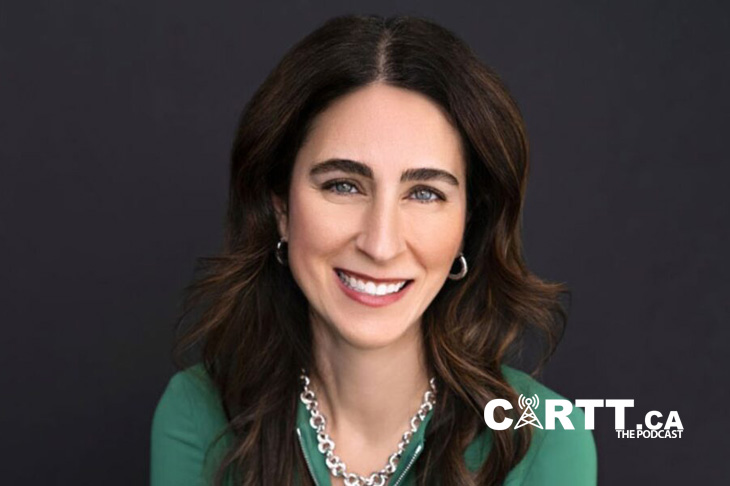QUEBEC CITY — Leclerc Communication tried out its best logical gymnastics on Wednesday as it appeared before a CRTC hearing to justify its requests related to the proposed $19-million acquisition of CHOI-FM (Radio X) in Quebec City and CHLX-FM (91,9 Sports) in Montreal from RNC Media.
Besides the ownership transaction itself, Leclerc is asking for an exception to the common ownership policy to acquire Quebec City's most popular commercial radio station and keep its two others, and is seeking to change CHLX's format from sports talk to music.
(Ed note: For what it’s worth, other radio station owners have argued the Commission’s common ownership policy is outdated and needs revision.)
On one hand, brothers Jean-François and Nicolas Leclerc argued that they should be given an exception to the rules similar to those given in the Montreal market to Cogeco and Bell when they acquired stations from Corus and Astral, respectively. On the other hand, they argued that they're nothing like Bell and Cogeco, which collectively own 96% of the commercial market share in Montreal and 60% across the province.
On one hand, they argued Montreal needs a new serious competitor in music radio to counter the dominance of Bell and Cogeco, and on the other hand they downplayed the dominance they would have in the Quebec City market as a result of the transaction.
But with the help of former CRTC commissioner Suzanne Lamarre, who acted as a regulatory consultant, the Leclerc brothers made a strong case to the three-member panel that the applications would serve the public interest. They also made clear that there is no Plan B. If the Commission doesn't allow the exception to the common ownership rules, the company won't proceed with the transaction.
It's not an easy case to make. Radio X is the market's highest-rated station and Leclerc's other stations WKND 91,9 and BLVD 102,1 (both acquired after the Cogeco-Corus 2010 deal that gave Cogeco too many stations in Quebec City) have been profitable since 2015. Leclerc isn't promising a new national news network as Cogeco did in 2010 to allow it to keep three French-language FM stations in Montreal, nor is it promising to keep a money-losing specialty-format AM station on the air, like Bell did in 2013 to keep TSN Radio when it acquired Astral Media.
Leclerc also isn't proposing additional tangible benefits beyond the six per cent minimum for a radio acquisition, though it said it might accept a slightly higher amount if that was imposed by the Commission.
CRTC vice-chair Caroline Simard asked about CHOI's troubled history of controversial populist talk, with four unfavourable decisions from the Canadian Broadcasting Standards Council since 2013, which were based on 37 valid complaints and "hundreds" of complaints that were not receivable because they didn't meet CBSC criteria.
Leclerc, whose BLVD station has employed controversial personalities like André Arthur, didn't offer specifics on keeping CHOI under control, but said a new ethics code is being put in place at its stations and all complaints are taken seriously.
The Montreal application, which would kill the market's only French-language all-sports radio station, requires approval because it switches from a talk format to a music one. Leclerc wants to replicate the WKND format in Montreal, in part because the two stations happen to be on the same frequency, making common branding and marketing easier. The two stations would also share some programming.
Leclerc touted its WKND format of upbeat music, which features a bit of new country, a show devoted to emerging artists, and a playlist where more than half the songs aren't heard on other stations.
However, the proposed format swap prompted several interventions from 91,9 Sports's small but loyal audience. Listeners Martin Houde and Carl Girard, who appeared at the hearing, suggested that instead of copying a Quebec City format in Montreal, the group should copy the sports talk format in Quebec City.
Leclerc argued that Montreal powerhouse 98.5 FM, which has the broadcasting rights to Montreal Canadiens, Alouettes and Impact games, and is sports-talk during the evenings, would satisfy the Montreal market's sports talk needs, and that their inability to secure those rights was a "major handicap" to making 91,9 Sports profitable.
Houde and Girard argued that 98.5 can only broadcast one event at a time (a situation that would only be more complicated if Montreal ever sees the return of the Expos), and that it provides inadequate coverage of amateur sports. They also questioned how the Montreal market could have a full-time English-language sports talk station but not a French-language one.
The WKND proposal did have a fan in ADISQ, the Quebec music industry association, which argued that Montreal is lacking for French-language music stations. Excluding a classical music station and Radio-Canada's ICI Musique, the market has only four on the FM band. Leclerc agreed with ADISQ before the hearing to provide an annual report of how it's promoting emerging artists, and in turn ADISQ supports the acquisition.
This hearing was a single-day affair and a decision will be rendered in the coming months.



